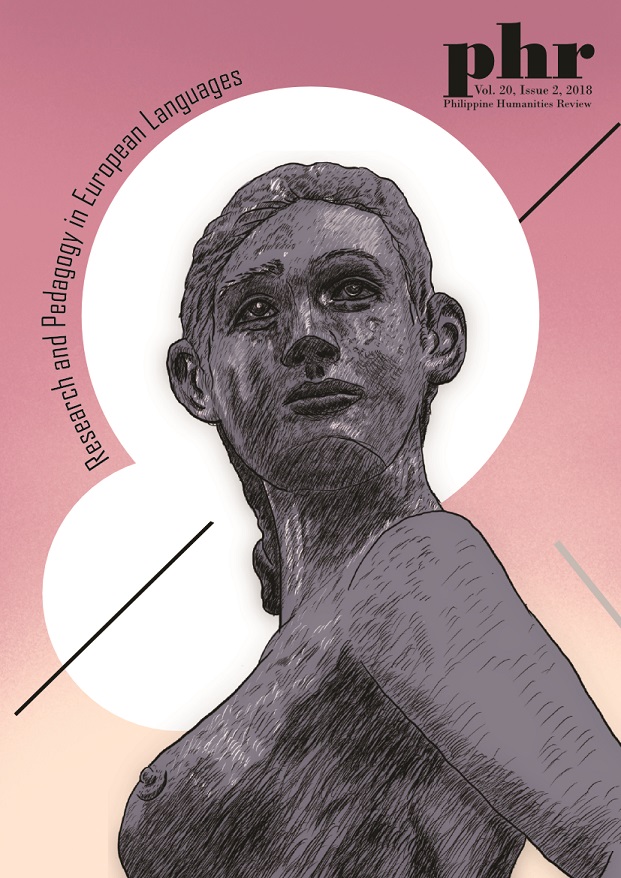The “Chosen Nation” Theme in Cold War Fil-Hispanic Poetry: A Reading of Rimas Filipinas (1964)
Abstract
This paper essays a reading of one Fil-Hispanic poemario, the poetry anthology Rimas Filipinas (1964), a joint collaboration between two poets, Emeterio Barcelón y Barceló-Soriano (1897-1988) and Francisco Zaragoza y Carillo (1911-1990). This poetry collection, according to one scholar who interviewed the two in the course of writing research on the anthology, was a project in which both poets agreed not to identify who wrote what in the work. The reading situates the work in the Cold War period and uses this as historical backdrop in looking at the “chosen nation” theme in the said poemario. The Philippines as a “chosen nation,” seen against the backdrop of the ideological conflict that was the Cold War, is a characteristic that emerges in Rimas Filipinas, where the country is imaged as a bastion of Christianity/Catholicism in the whole of Asia and receiving special protection from Mary. In turn, this Catholic identity is deployed in the Cold War rivalry between Christianity and the considered godless ideology of Communism. The affirmation of the country’s Catholic faith, seen in the totality of Fil-Hispanic literary discourse, is an affirmation of the Hispanic culture found in the Philippines, of which writers in Spanish emphasize three main components: 1) the Spanish language; 2) Hispanic customs, traditions, and practices; and 3) the Catholic faith.
KEYWORDS: Philippine poetry in Spanish, Philippine literature in Spanish, Rimas Filipinas, Emeterio Barcelón, Francisco Zaragoza, Chosen Nation theme, Cold War, 1950s-1960s, Communism, Catholic faith, Christianity/Catholicism vs. Communism


